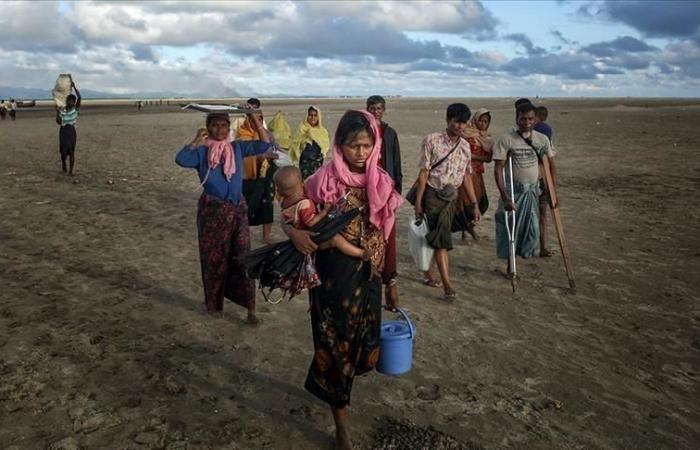AA / Dhaka, Bangladesh / SM Najmus Sakib
As part of the escalating conflict in Myanmar between the junta government and the Arakan rebel army, 60,000 Rohingya have entered Bangladesh over the past two months, a Bangladeshi official said on Sunday.
Bangladesh hosts more than 1.2 million Rohingya in the Cox's Bazar district in the southeast of the country. Most Rohingya Muslims fled Myanmar in August 2017 following a military crackdown.
Rohingya infiltrations have also been facilitated by corruption on the Bangladesh-Myanmar border, with some people helping Rohingya cross the border in exchange for financial compensation.
Md. Touhid Hossain, Foreign Affairs Advisor, briefed reporters on his visit to Bangkok, where an informal consultation meeting was held on Thursday among six countries, namely Laos, Thailand, India, China , Myanmar and Bangladesh.
“Our principled position is to no longer allow entry of Rohingyas. However, sometimes the situation becomes such that we can no longer do anything. Faced with such a situation, we authorized the entry of 60,000 Rohingyas. We did not officially let them in, but they came through different routes,” Hossain said in Dhaka.
However, he said he was convinced that there would be no new wave of influx of Rohingyas. “But we must take steps to stem this wave, in collaboration with the international community,” he added.
The meeting was held last Thursday under the chairmanship of Thai Foreign Minister Maris Sangiampongsa. Myanmar Deputy Prime Minister and Foreign Minister U Than Swe was also present at the meeting.
Neighboring countries consider it unlikely that Myanmar will return to its former situation, Hossain added, adding that all countries present at the meeting called on Myanmar to resolve its internal problems through talks with all parties concerned.
The Arakan Army takes control of new areas in Rakhine State along the border with Bangladesh. Hossain, however, said it was not possible to hold formal talks with those who now control more areas in Myanmar along the Bangladesh border.
Talking about the meeting with Than Swe, Hossain said: “I told him (Than Swe) that the Myanmar border is not under your control. It came under the control of non-state actors. As a state, we cannot get involved with non-state actors. So it is up to them (the Myanmar government) to find a way to resolve the issues related to the border and the Rohingya. »
*Translated from English by Mourad Belhaj
Only part of the dispatches, which the Anadolu Agency broadcasts to its subscribers via the Internal Broadcasting System (HAS), is broadcast on the AA website, in summary form. Please contact us to subscribe.






